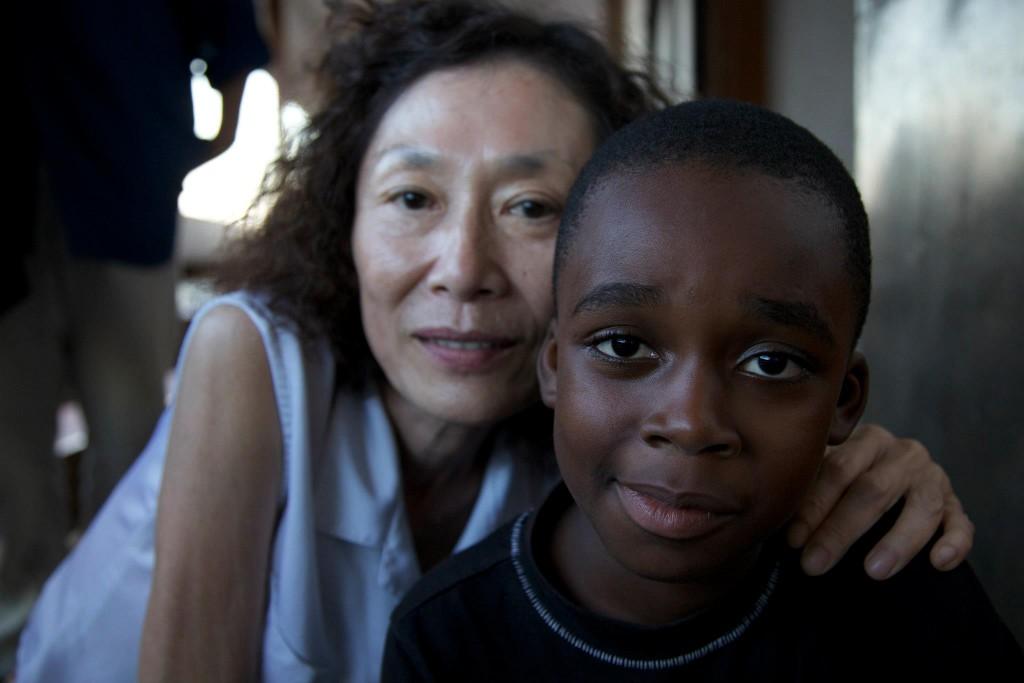From family-centred dramas to discovery-type sagas, Hot Docs has it all. The 20th annual documentary film festival showcased 204 films from around the world in 11 days.
The Toronto-based festival has grown over the years and has become the meeting stop for prominent filmmakers who are serious about documentaries.
As the Documentary Organization of Canada (DOC) put it in their ad campaign: “As Jazz is to America, so documentary is to Canada.” And it’s not hard to see why.
The DOC launched a petition to declare documentary as Canada’s national art form, stating that the first documentary “Nanook of the North,” released in 1922, was Canadian, filmed near Inukjuak, Quebec. The term “documentary” was coined by John Grierson, who launched the National Film Board of Canada in 1939.
“Toronto has become a world capital for cinema lovers, and feeding their appetite for 20 years has been great fun,” says Chris McDonald, Hot Docs executive director, in a release.
The Bloor Hot Docs Cinema is one of the only cinemas in the world to be documentary focused. In addition to the screenings, hundreds of events, forums, industry meetings, panel discussions, award ceremonies, and networking events are aimed at furthering interest in the industry.
Doc for Schools, an educational program that provides free screenings to high school kids, reached a record of 78,000 students this year. The festival, in conclusion, saw over 180,000 enthusiastic attendees.
‘High Five: A Suburban Adoption Saga’
Director Julia Ivanova chose a B.C. couple, Cathy and Martin, and their 5 adoptive children as her subjects. Cathy and Martin, who own a nice little house in quiet Surrey B.C., decide to take a child from a Ukrainian orphanage for summer foster care.
After falling in love with the girl, they decide to bring her sister, also at the orphanage, for a summer in Canada.
But when the couple discovers the girls have three other siblings at the orphanage, they decide to start the adoption process for all five children.
They want to give these children a proper childhood, something they were robbed of growing up with domestic violence in Ukraine. Everything from the extensive and expensive adoption process to sibling conflicts is brought to light on camera.
The older siblings are 16 and 17, and the film exposes the difficulty of adopting grown children. Sibling rivalry, the need for attention, having a loving mother and father figure, as well as maturing and growing up in a different culture are the elements that make the film moving.
Ivanova specifically chooses to focus on the difficulties of adopting older children from a strikingly different culture. This dynamic, which creates miscommunication between the children and the parents, makes the couple think about broader questions like “What makes a good parent?”
In between tears and laughter are thinly intertwined themes of the power play in large families and the power of affection.
‘The Defector: Escape From North Korea’
A heart wrenching depiction of what the world is like for a North Korean who wishes to escape is shown through the lens of director Ann Shin who follows Dragon and his five North Korean clients.
Dragon is a heavy smoking defector with 3 cell phones, a man who arranges the intricate escape of five North Koreans through China and Laos to Thailand where the defectors hope to get refugee status and then start a new life in South Korea.
Shin clearly depicts a life lived in fear as the defectors are followed through Communist-ruled, heavily-policed China. If they are caught in China, they will be turned in to the North Korean authorities, tortured for betrayal of their motherland, which, as explained in the film, will most definitely lead to death.
In a Q&A after the screening, one of the subjects of the film, a Canadian North Korean, told how these people take poison with them on their journey, because if caught, it’s better to die instantly than be tortured and see your family punished too.
Shin bravely follows the defectors, making for many edge-of-your-seat moments as the defectors’ narrowly escape death. Although every subject’s face is blurred for security reasons, it’s not difficult to become emotionally attached to these peoples’ well-being.
Seeing people risk their lives for freedom and throw themselves into such danger, makes one question the world we live in and the high price of freedom.
The film also reveals that even after the defectors make it to South Korea, life is not easy, as there is discrimination and cultural differences that set these people apart.
‘Good Ol’ Freda’
American filmmaker Ryan White found the perfect angle for a long retold story. His film shows The Beatles through the eyes of Freda Kelly, their secretary and fan club manager.
The private and soft-spoken Kelly has never gone on record, and it’s clear why. She wasn’t a kicking and screaming die-hard fan that fainted at the sight of George, Paul, Ringo and John. She was just a young girl from Liverpool who really liked their music and believed in their success.
Even though very private, Kelly shines light on some interesting and intimate behind-the-scenes details of the lives of the Fab Four. It’s clear that Kelly, who still works as a secretary, is not doing it for fame or the money. She told how in the 70s she gave most of her memorabilia away to Beatles fans— memorabilia she could have earned a fortune with today.
When looking through her attic, she flips through photo albums and Beatles magazines musing that she hasn’t opened the boxes for over 40 years. Stumbling upon a signed card with a piece of hair caught under the tape, she matter-of-factly says, “It’s George’s.”
Kelly is charming and hardworking and reveals her undying loyalty to The Beatles. She never speaks about anything personal going on among the four, and she always tries to clean up the rumours.





